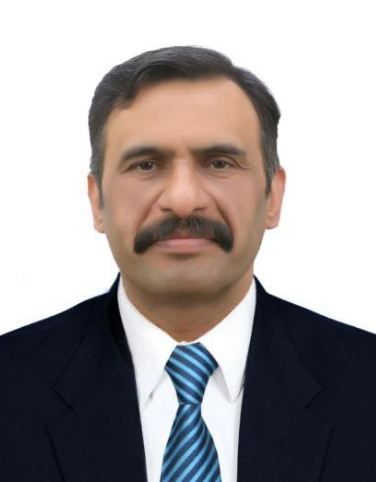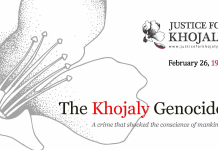Dr Muhammad Rizwan Bhatti
Honour killings represent a grim and stark aspect of society, a blatant manifestation of entrenched patriarchal and male chauvinistic attitudes. Honour killing is often considered a crime of passion, frequently triggered by sudden provocation. The stark causes and intrinsic drivers of honour killings typically stem from ethnicity, punitive measures for disobedience or intransigence, self-stigma following rape, the pursuit of divorce and mainly under the pretext of illicit and extramarital relations. Gender discrimination, imbalanced gender power dynamics and the cultural appropriation of the female entity also form the bedrock of honour killings. Amnesty International observes that “the honour killing of a woman by a male relative is not an individual act of violence, but one that is collective, planned, sociologically predictable and socially approved by both men and women in the family and community concerned.
Honour killing signifies the egregious murder of a woman on account of her engaging in illicit, pre-marital, or extramarital relations with a paramour, which profoundly contradicts the socio-cultural norms of our society. Elopement, in particular, is considered a profound disgrace for the entire family and community at large. The oppressive pressure of patriarchal hegemony gives rise to the intent to kill the girl or woman to reclaim lost and defiled honour. Human rights organizations estimate that around 1,000 women are brutally murdered in the name of honour every year across Pakistan.
The socio-political, cultural, and religious fabric of Pakistan is intricately woven with factors that contribute to honour killings. With local court systems like jirgas frequently superseding federal legislation, political favoritism and a deeply ingrained feudal structure enable wealthy families to shield offenders. The state’s role is weak, and the low conviction rate is ascribed to poor investigations, corrupt police, and the belief that these are “family matters.” The idea of ‘ghairat’, or masculine honour, is a major cultural motivator that is thought to be undermined by female autonomy and sexuality. Although the majority of victims are women, men from lower socioeconomic backgrounds may sometimes be singled out. These elements are made more complex by the abuse of religious scriptures to support the violence, even though fatwas have been issued against the practice and prominent religious authorities have condemned it. These factors come together to show how the state fails to safeguard its people and apply the law fairly.
The glaring fact is that most of the honour killing cases have been unreported as the family involved in the murder of a girl. According to recent news reports, a macabre incident of honour killing took place in Balochistan in which a girl was shot to death at the behest of local elders. Likewise, in Rawalpindi, Punjab, local elders reportedly ordered the murder of an 18-year-old girl named Sidra Bibi after she married a guy of her choice. Nine people have been detained in connection with the crime, including her father and ex-husband. Police retrieved her body after being buried by family members to conceal the evidence, and an examination revealed that she had been tortured before her death.
Statistics unequivocally reflect a continued and alarming trend. In 2022, there were approximately 590 reported honour killing cases nationwide, followed by 490 in 2023. More recently, at least 405 killings have been recorded in 2024 according to the Human Rights Commission of Pakistan (HRCP), with the vast majority of victims being women. HRCP data further delineates that across Pakistan in 2024, 405 individuals, predominantly women, were killed in honour-related crimes, with 168 cases reported in Punjab (the highest of any province) and closely followed by 151 in Sindh. Despite the gruesome murders in the name of honour, the conviction rate is shockingly low at 0.5%, emboldens the perpetrators and reflects the lacunas in the legal framework.
These figures, however, are likely stark underestimates, as numerous cases regrettably go unreported due to pervasive cultural and societal pressures. The Sustainable Social Development Organisation (SSDO) reports an unsettling total of 547 honour killing cases nationwide in 2024, including 225 in Punjab, 134 in Sindh, 134 in Khyber Pakhtunkhwa (KP), 32 in Balochistan and 22 in Islamabad Capital Territory. Alarmingly, conviction rates remain shockingly low, a mere 0.5% for honour killings nationwide, with only two convictions in Punjab despite 225 reported cases.
Though concerning, it is crucial to remember that these numbers frequently differ throughout businesses. For example, it is difficult to precisely track these crimes because many go unreported and different organizations utilize different procedures and sources for their data collection. This is demonstrated by the discrepancy between the HRCP’s count of 405, and the SSDO’s figure of 547 for 2024.
Socio-cultural and traditional norms assert that zarr (wealth), zan (women), and zameen (land) are integral stakes of honour. Historically, violence and massive killings have transpired to reclaim honour when any of these are perceived to be assaulted. Moreover, if a woman in the family is dishonoured, pestered, molested, disrespected, or sexually exploited by another man, it is invariably dubbed as an onslaught on the prestige of male family members. This egregious perception causes ill will and deep-seated grudge against the alleged culprit, which often culminates in his killing as well. If a married woman gets into extramarital relations with another man, being cuckolded is considered the most haunted curse.
When a husband tragically discovers the illicit relations of his wife with another man, honour killing frequently ensues. Similarly, suppose a girl establishes a romantic or sexual relationship with any boy or expresses a willingness to marry a boy from her own heart. In that case, these pre-marital relations are considered an infringement of honour by the male family members of the girl and are often unpardoned. There are thus obvious assumptions that honour-based violence against the girl is a natural concomitant of perceived dishonour.
However, the horrendous affair of honour killing in other Muslim countries is not much different. Honour murders are still common in many countries with a majority of Muslims and they are frequently oblivious of the punitive and legal systems. Despite reforms, courts in Jordan continue to mitigate penalties in roughly 23 reported cases annually. Husbands who claim infidelity are involved in 41% of these crimes in Egypt. Due to legal loopholes that shield male relatives, honour-related homicides account for up to 30% of all homicides in Iran. Despite life sentences, 200 to 300 cases are decided annually in Turkey. Over two years, 243 occurrences occurred in Afghanistan, although convictions were hampered by tribal influence. Cases that are tried under general homicide laws are less common in Malaysia. Despite legal reforms, victims seeking justice continue to face significant barriers due to deeply ingrained cultural norms throughout the Muslim countries.
It presents an exceptionally challenging task for civil society, the government and the judiciary to transform the deeply entrenched socio-cultural psyche of the people fundamentally. These individuals, regrettably, remain far more possessive and committed to their ethno-community-based socio-cultural patterns in comparison to their allegiance to society, the state and the law. The government must adopt draconian measures to unequivocally buttress police investigations and court procedures to bring the culprits to book. Justice should be served without equivocation, and the killer of a woman, who flaunts false pride, should justly perish in jail. Honour killing is an inhumane act and a macabre practice that savagely ravages families. It is a premeditated murder that starkly surfaces the offensive and dastardly aspects of society.
Given that most victims of honour killing and domestic violence cases are predominantly against women, economic independence can significantly strengthen this vulnerable segment of society. The rigorous enforcement of laws for the protection of women’s rights, especially the Anti-Honour Killing Laws Amendment Bill and the Anti-Rape Laws (Criminal Amendment) Bill of 2014, both passed by the Senate of Pakistan, is crucial. Furthermore, the compoundability provision, which currently allows for reconciliation in certain criminal cases, should be thoroughly deliberated upon in the context of the cold-blooded murder of women under the nefarious garb of honour killing, to prevent its egregious misuse.
Moreover, in honour killing instances, where the victim and the murderer frequently live in the same home, Section 311 of the Pakistan Penal Code, which permits victims’ relatives to pardon murderers, becomes especially troublesome. Criminals can evade justice because of the ongoing abuse of this legal loophole. However, a special legislative amendment is required in order to resolve the legal flaws adequately. The opportunity for families to pardon the culprit must be eliminated when the government proposes an amendment to make honour killings a non-compoundable offense. This would guarantee that murderers are held responsible and that the judicial system reflects the seriousness of the crime. For that purpose, political will needs to be strong.
The public conversation around honour killings in Pakistan has changed significantly as a result of social media platforms, independent female journalists and grassroots initiatives like the Aurat March. These platforms have brought previously ignored concerns to the public’s notice by elevating survivor’s voices, bringing injustices to light and questioning patriarchal norms. Youth have been mobilized, lawmakers have been pressured and cultural explanations for such violence have been refuted by digital activism, which has gradually changed public opinion from one of passive acceptance to one of collective condemnation of crimes based on honour. However, the significant role of Religious Ulemas cannot be ignored. To dispel long-standing misconceptions that incorrectly associate such violence with religious approval, mainstream religious scholars must vigorously and categorically condemn honour killings.
Despite the enormous barrier, enlightened religious leaders are speaking out. Honour murders have been openly denounced by mainstream academics and organizations, who contend that they are against Islamic principles and a perversion of religious ideals. Their work is essential to dispelling the fallacy that religious grounds may excuse these heinous atrocities. Delegitimizing these acts and reaffirming that faith does not excuse murder requires strong public denunciation.
Dr Muhammad Rizwan Bhatti is a Ph.D in Political Science and a Police Inspector. He can be reached at [email protected] X: @rizwanbh79

















